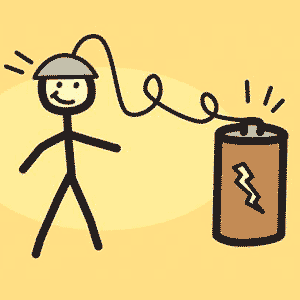 Positive Coping of Anger: Calm Self
Positive Coping of Anger: Calm Self
At this point you have learned several tools that will help you calm yourself down when you are upset. However, I should say a word of warning here. Many people try these tools one time and conclude they don’t work. I hear things like, “I did the breathing once and it didn’t work. Nothing works for me.” Don’t give up that easily. Learning anything new is going to take practice.
And the real truth is that is doesn’t matter what you do for positive coping, as long as you are calming yourself down. I’ve had clients play guitar, work on model railroads, read a book pray, paint, do pottery–whatever calms you down. The goal is to bring your tension level down fast so that you can think. How you do that is up to you.
Obviously, if you catch your anger early it is easier to calm yourself down. If you catch your anger at a low level you will probably not even need all of these tools. But the longer you wait before you start to use these tools, the less effective they will be. If yo start using a tool when you are at a 9, it will be much, much harder (and take more time) for you to calm down.
It is also important to note that different tools vary in their effectiveness at different levels. You might find that for you controlled breathing works great when you are at a 4, but does nothing at a 9. You may see that muscle relaxation is great at a 7 but doesn’t do much for you at a 2. The key here is the increase your toolbox by adding more tools to calm yourself down, and then figuring out when to use each tool. The answer is not to just do breathing at every step. And this is different for every person. So you need to find the tools that work for you, and figure out when they work.
The goal of these tools is to calm you down in the moment so that your IQ starts rising again and you can respond i n a productive way. When I notice that I am getting angry I often take a quick minute and walk into another room. I might take a deep breath or splash some water on my face. Then I return. And 99% of the time, no one even noticed that I was gone. If you catch it early, it can be like this for you too.
It’s important to note that these tools do not solve your anger. They are a piece of the puzzle. They are short-term answers. They do not deal with what is going on underneath. The don’t deal with what is wrong, and they don’t help you make a situation better. The are not enough on their own. But they are part of the process and they can help you in the moment, which is valuable.
When you learn to use these tools effectively, you can calm yourself down and that will put you in a position where you can think rationally and clearly about your situation. That is a much better place to be than to be raging and screaming, don’ you think?

 Positive Coping of Anger: Calm Self
Positive Coping of Anger: Calm Self